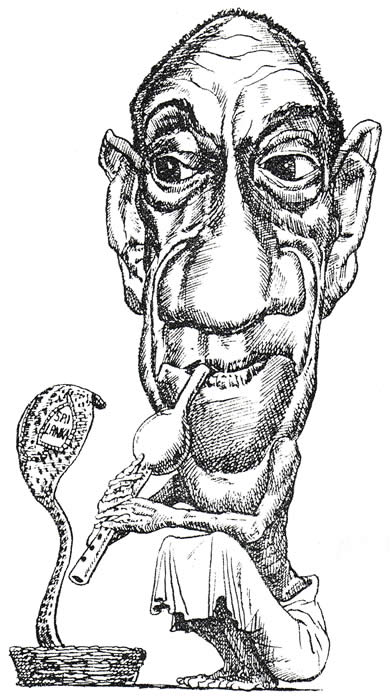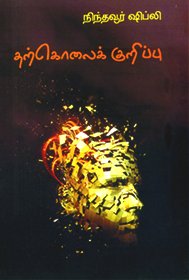 [ July 24, 2012 ] Many things are said about Black July, 1983. That there were many culprits who caused the havoc that virtually destroyed the image of Sri Lanka and which gave justification for a prolonged period of violence. However, there was one man who was the creator of this havoc. It was then-President of the country, Junius Richard Jayawardene. His work of destroying the fabric of Sri Lankan democracy started from the very first day after he won the election as the leader of the United National Party, in 1977. His very first act as the Prime Minister elect was to grant a “holiday to the police”. That holiday lasted for two or three weeks. That was the first act done to intimidate his political opponents. With an ambition to hold onto power and not to give up what he had won, he knew one of his major strategies needed to be to launch a period of violence in order not to allow space for internal challenges from disaffected democratic forces. That process went on through various kinds of initiatives, which are well-recorded. The 1982 referendum was a major assault he made on the electoral politics in Sri Lanka. He was seriously pursuing his ambition to “close the electoral map” of Sri Lanka for some time.
[ July 24, 2012 ] Many things are said about Black July, 1983. That there were many culprits who caused the havoc that virtually destroyed the image of Sri Lanka and which gave justification for a prolonged period of violence. However, there was one man who was the creator of this havoc. It was then-President of the country, Junius Richard Jayawardene. His work of destroying the fabric of Sri Lankan democracy started from the very first day after he won the election as the leader of the United National Party, in 1977. His very first act as the Prime Minister elect was to grant a “holiday to the police”. That holiday lasted for two or three weeks. That was the first act done to intimidate his political opponents. With an ambition to hold onto power and not to give up what he had won, he knew one of his major strategies needed to be to launch a period of violence in order not to allow space for internal challenges from disaffected democratic forces. That process went on through various kinds of initiatives, which are well-recorded. The 1982 referendum was a major assault he made on the electoral politics in Sri Lanka. He was seriously pursuing his ambition to “close the electoral map” of Sri Lanka for some time.
By 1983, he was fully aware of the dissatisfaction among the democratically minded sections of society due to the erosion of democracy that he was causing. He needed a lot more violence and he was looking for events that could enable the unleashing of greater violence. That opportunity came when the news of thirteen soldiers being killed in the north arrived. He was aware that the discontent was growing in the armed forces. He also knew that there were suggestions to have a common funeral for the thirteen soldiers in Colombo Cemetery. According to accounts published by his own close collaborators, Prime Minister Premadasa himself advised JR Jayawardene of the unavoidable consequence of there being riots in Colombo if this was allowed. However, JR Jayawardene made his own calculations about the opportunity that he had before him to divert the attention of the country away from him. He quite deliberately allowed the funerals to take place in a manner that would bring about what we know today as Black July. It was a calculated action to take advantage of a situation for his own political survival.


 கவிஞர் நிந்தவூர் ஷிப்லியின் தற்கொலைக் குறிப்பு என்ற கவிதைத் தொகுதி இந்தியாவின் பிளின்ட் பதிப்பகத்தினரால் வெளியீடு செய்யப்பட்டுள்ளது. இவர் 2002 இல் சொட்டும் மலர்கள், 2006 இல் விடியலின் விலாசம், 2008 இல் நிழல் தேடும் கால்கள் ஆகிய மூன்று நூல்களை வெளியிட்டவர். 77 பக்கங்களில் வெளிந்துள்ள இந்த நூலானது போர்ச் சூழல் கால கவிதைகளால் நிறைந்திருக்கிறது. யுத்தம் விழுங்கிய அத்தனை அப்பாவி உயிர்களுக்காகவுமே இந்த நூலைக் கவிஞர் சமர்ப்பணம் செய்துள்ளார். பதிப்பாளர் உரையில் ஜாபர் ஷாதிக் அவர்கள் எத்தகைய வீரனும் வெல்ல முடியாத ஒன்றான மரணத்தின் கடைசி நுனிவரை சென்று யாரும் அனுபவித்துவிடாத ஒன்றை அனுபவித்திருப்பாரோ என்கிறளவு நினைக்க வைக்கிறது ஷிப்லியின் வரிகள் என்று குறிப்பிடுகிறார். தமிழ்நாட்டைச் சேர்ந்த சேவியர் ஈழம், தமிழன் எனும் வார்த்தைகள் அரசியலுக்காக வெட்டப்படும் சதுரங்கக் காய்கள் எனும் நிலையில் தமிழக (இந்தியா) வீதிகள் வியூகங்கள் வகுத்துக்கொண்டிருக்கின்றன. அந்த வீதியின் அறைகளில் இருந்துகொண்டு ஷிப்லியின் கவிதைப் பக்கங்களை புரட்டப் புரட்ட விரல்களின் நுனிகளிலும் உணர முடிகிறது வழியும் குருதியின் பிசுபிசுப்பை. துயரத்தின் தெருக்களின் வழியாக அலைந்து திரியும் ஒரு பிரமை பிடித்தவனின் மனநிலைக்குள் என்னை இறக்கி வைத்தது ஷிப்லியின் கவிதைத் தொகுப்பு என்றால் அதில் எள்ளளவும் மிகையில்லை என்கிறார். அதே போல் ராஜகவி றாஹிலும் விழிகளில் குருதி வடிய வைக்கும் கவிதைகள் என்ற தனது கருத்தை துள்ளியமாக பதியவைத்துள்ளார். இதே பாணியிலான கருத்தை ஆணியடித்தாற் போல வெற்றி வானொலியின் நிகழ்ச்சிப் பணிப்பாளர் ஏ.ஆர்.வீ. லோஷன் அவர்களும் முன்வைத்துள்ளார்.
கவிஞர் நிந்தவூர் ஷிப்லியின் தற்கொலைக் குறிப்பு என்ற கவிதைத் தொகுதி இந்தியாவின் பிளின்ட் பதிப்பகத்தினரால் வெளியீடு செய்யப்பட்டுள்ளது. இவர் 2002 இல் சொட்டும் மலர்கள், 2006 இல் விடியலின் விலாசம், 2008 இல் நிழல் தேடும் கால்கள் ஆகிய மூன்று நூல்களை வெளியிட்டவர். 77 பக்கங்களில் வெளிந்துள்ள இந்த நூலானது போர்ச் சூழல் கால கவிதைகளால் நிறைந்திருக்கிறது. யுத்தம் விழுங்கிய அத்தனை அப்பாவி உயிர்களுக்காகவுமே இந்த நூலைக் கவிஞர் சமர்ப்பணம் செய்துள்ளார். பதிப்பாளர் உரையில் ஜாபர் ஷாதிக் அவர்கள் எத்தகைய வீரனும் வெல்ல முடியாத ஒன்றான மரணத்தின் கடைசி நுனிவரை சென்று யாரும் அனுபவித்துவிடாத ஒன்றை அனுபவித்திருப்பாரோ என்கிறளவு நினைக்க வைக்கிறது ஷிப்லியின் வரிகள் என்று குறிப்பிடுகிறார். தமிழ்நாட்டைச் சேர்ந்த சேவியர் ஈழம், தமிழன் எனும் வார்த்தைகள் அரசியலுக்காக வெட்டப்படும் சதுரங்கக் காய்கள் எனும் நிலையில் தமிழக (இந்தியா) வீதிகள் வியூகங்கள் வகுத்துக்கொண்டிருக்கின்றன. அந்த வீதியின் அறைகளில் இருந்துகொண்டு ஷிப்லியின் கவிதைப் பக்கங்களை புரட்டப் புரட்ட விரல்களின் நுனிகளிலும் உணர முடிகிறது வழியும் குருதியின் பிசுபிசுப்பை. துயரத்தின் தெருக்களின் வழியாக அலைந்து திரியும் ஒரு பிரமை பிடித்தவனின் மனநிலைக்குள் என்னை இறக்கி வைத்தது ஷிப்லியின் கவிதைத் தொகுப்பு என்றால் அதில் எள்ளளவும் மிகையில்லை என்கிறார். அதே போல் ராஜகவி றாஹிலும் விழிகளில் குருதி வடிய வைக்கும் கவிதைகள் என்ற தனது கருத்தை துள்ளியமாக பதியவைத்துள்ளார். இதே பாணியிலான கருத்தை ஆணியடித்தாற் போல வெற்றி வானொலியின் நிகழ்ச்சிப் பணிப்பாளர் ஏ.ஆர்.வீ. லோஷன் அவர்களும் முன்வைத்துள்ளார்.